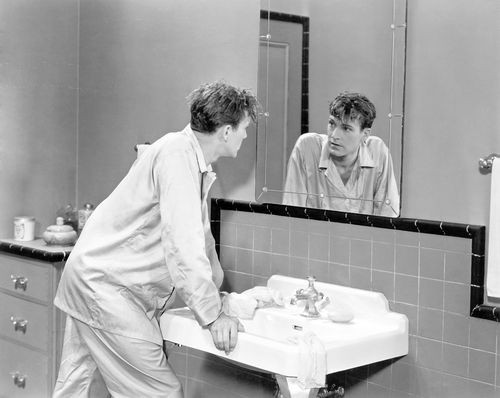Exercise May Cure Symptoms Of Nocturia In Older Men With BPH: If You Workout, You Probably Won't Have To Pee In The Middle Of The Night

How beautiful is the word “nocturia?” Despite how lovely it may sound, the word combines “nocturnal” with “uria” to describe a health condition common in older men, that of waking up in the middle of the night to urinate. Now, there’s equally pleasant-sounding news for those who suffer from nocturia: A recent study has found that men who exercise routinely are less likely to suffer from the condition.
In men, nocturia is the most common lower urinary tract symptom and is often caused by an enlarged prostate, or benign prostatic hyperplasia (BPH), which results in the urethra being squeezed. Other causes include low bladder capacity, overproduction of urine, and simple sleep disturbances. Women who experience nocturia generally do so as a result of changes caused by childbirth, menopause, and pelvic organ prolapse. Nocturia is estimated to occur in more than 50 percent of men and women over the age of 60, with the condition worsening over time. Many people follow a pattern of waking an increased number of times with the passage of each decade of their lives (i.e. once in their 60s , twice in their 70s, etc.).
To better understand nocturia, Dr. Kate Wolin, an associate professor in the departments of Surgery and Public Health Sciences of Loyola University Chicago Stritch School of Medicine, and a team of colleagues examined the impact of physical activity. The team analyzed data from the Prostate, Lung, Colorectal and Ovarian Cancer Screening Trial (PLCO), an ongoing clinical trial that includes male participants between 55 and 74. The PLCO survey includes questions on enlarged prostate and nocturia as well as physical activity and other lifestyle factors.
In particular, Wolin’s team analyzed the data from a sub-group of 28,404 male participants who had BPH before enrolling in the study and compared the data to another group of 4,710 men who developed BPH during the study. Among those who developed nocturia during the study, physically active men (defined as exercising one or more hours per week) were 13 percent less likely to report nocturia and 34 percent less likely to report severe nocturia than men who reported no physical activity. Physical activity reduces body size, improves sleep, decreases sympathetic nervous system activity, and lowers levels of systemic inflammation so these effects may explain the numbers, the team suggested.
Once again, exercise has been proven to promote good health. Seems none of us can afford to ignore its many positive effects.
Source: Wolin KY, Grubb RL, Pakpahan R, et al. Physical Activity and Benign Prostatic Hyperplasia-Related Outcomes and Nocturia. Med Sci Sports Exercise. 2014.
Published by Medicaldaily.com



























